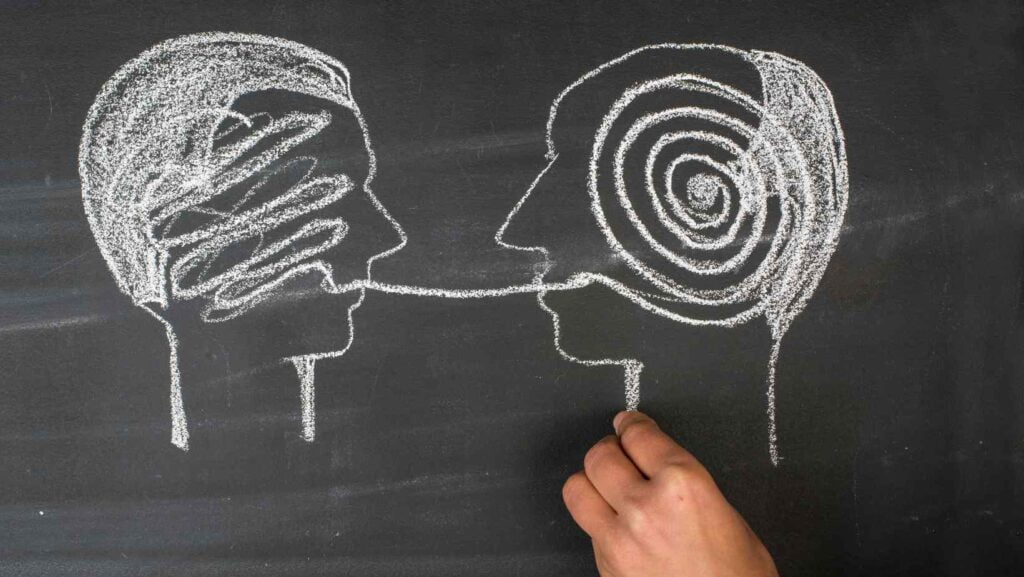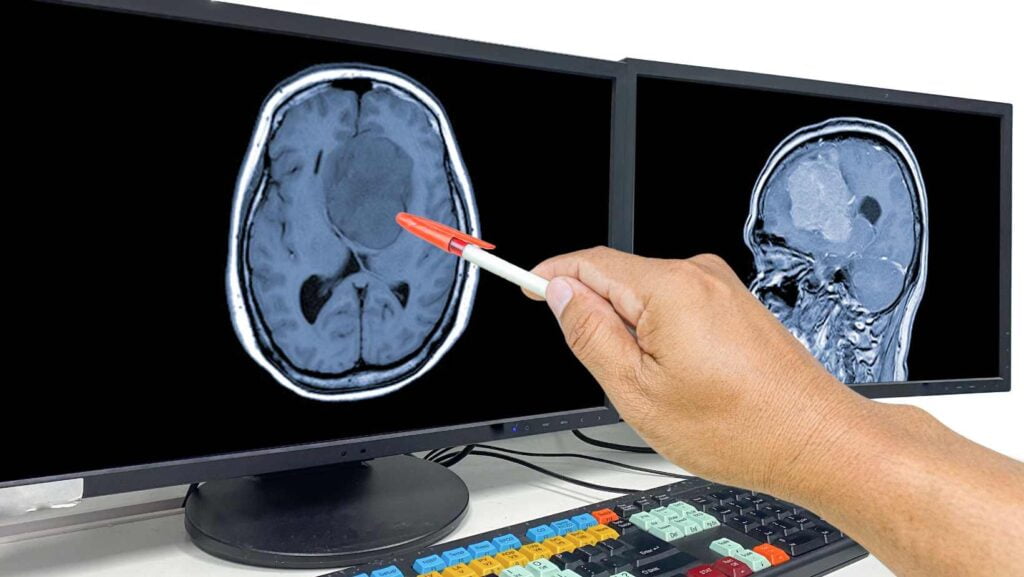5 Early signs of Obsessive Compulsive Disorder (OCD) that you shouldn't ignore
Keeping your surroundings clean and your house well organised are considered healthy habits, but it could get troublesome when you start becoming obsessed with these healthy habits.
Washing your hands frequently, cleaning your house to perfection, and organising everything in a cupboard could be a sign of an anxiety disorder which in medical terms is known as obsessive-compulsive disorder or OCD. People who suffer from this disorder often have obsessive thoughts and compulsions that unnecessarily complicate their lives. The early signs of OCD appear slowly, but you can overcome this disorder easily if you take the proper measures in the initial stages.
What is OCD?
Obsessive-compulsive disorder or OCD features a pattern of unwanted thoughts and observations that could lead you to repetitive behaviour. Twenty habits and compulsions intrude with your daily activities and cause significant distress.
You may neglect your obsessions, but it will only increase your distress and anxiety. Eventually, you will feel compelled to perform compulsive acts to ease your stress. Despite efforts to ignore or get rid of annoying thoughts for ages, Dell keeps coming back, leading to a more ritualistic behaviour.
Causes of OCD often centre around specific themes, such as extreme fear of getting contaminated by germs. So you start washing your hands by contamination fears until they are entirely so and chapped. If you have compulsive, repetitive behaviour, you may be embarrassed about the condition, but treatment could be effective.
What causes OCD?
The exact causes of OCD are still unknown, but researchers have said that some brain areas do not typically respond to serotonin, a chemical used by nerve cells to communicate with each other.
Genetics also contribute to OCD symptoms and signs. If your parents or sibling has OCD habits, there's about a 25% chance of another family member having it.
Early signs of OCD to look out for
Here are some early symptoms of OCD to look out for.
- Handwashing excessively: It is an excellent practice to keep your hands clean. Virus and bacterial infections are less likely as a result. Overcleaning, on the other hand, might be a common OCD thought. It's concerning to wash your hands or rub sanitiser on your hands many times every day. OCD can manifest itself as a strong need to keep yourself clean owing to a fear of germs and pathogens.
- Re-checking everything: It is one of the early signs of OCD in adults. Excessive checking of everything, including doors and gas knobs, might indicate something is wrong. Re-checking every 3-4 hours is a frequent practice among persons with OCD, and this practice might be motivated by various factors, including an obsession or a fear of being injured.
- Performing tasks systematically: Performing everything systematically is very common among early signs of OCD in childhood. People with OCD do actions according to a numerical pattern, which they usually follow. For example, when climbing the stairs, count the steps or do a particular task at a specific time. The majority of these behaviours are founded on superstition, and they are afraid that something terrible will happen if they do not complete the work.
- Extra organised: Some persons with early warning signs of OCD are overly organised. They follow a strict routine, such as keeping their phone on the left side of the desk and their water bottle on the right. They are pretty specific about where items are placed around them, and any change might cause them anxiety.
- Perfectionist: The majority of persons with OCD strive for perfection in all they do. They are more concerned with their appearance or a specific body area. Some people dislike their noses or smiles, making them self-conscious in public.
Why you shouldn't ignore the above-stated signs
Without treatment, the intensity of OCD can develop to the point that the sufferer's life is consumed by it. It can, for example, make it difficult for them to attend school, retain a job, and lead to social isolation. As a result, many persons with this illness consider suicide, and roughly 1% of those die by suicide.
In terms of the prognosis for the individual symptoms, it is uncommon for them to progress to the point where they are physically incapacitating. However, issues such as excessive hand washing can lead to concerns such as the skin getting dry and even breaking down, and trichotillomania can produce ugly scabs on the scalp.
Time to seek help
Because they are humiliated or embarrassed, people with OCD are typically hesitant to seek assistance. If you have OCD, on the other hand, you have nothing to be ashamed of. It's a long-term health problem, similar to diabetes or asthma, and it's not your fault.
It's critical to seek treatment because your symptoms are unlikely to improve and may worsen if you don't.
If you suspect you have OCD, you should see your doctor. They will most likely ask you a series of questions regarding your symptoms and how they affect you at first.
If your doctor believes you have OCD, you may be sent to a professional for an evaluation and therapy.
How is OCD treated?
The prognosis for OCD is favourable with therapy. In the end, most people will be cured of OCD, or at the very least have their symptoms reduced to the point that they can live everyday life.
The following are the most common OCD treatments:
- SSRIs selective serotonin reuptake inhibitors (SSRIs) – This medication can help reduce your symptoms by altering the balance of chemicals in your brain.
- Cognitive-behavioural therapy (CBT) – Involves a treatment known as graded exposure with response prevention (ERP), which encourages you to face your fear and let the obsessive thoughts occur without "neutralising" them with compulsions.
If these therapies don't work or your problem is especially severe, you may need to be sent to a mental health expert for help.
Conclusion
OCD symptoms can manifest in a variety of ways. In addition, other mental health diseases and settings, such as schizophrenia, anxiety, tic disorder, or postpartum OCD, can also be associated with OCD. Treatment can assist with any symptoms you may be experiencing.
Talk to your health care physician or a therapist if you're having trouble with everyday duties and personal relationships due to OCD symptoms. They can assist you in locating the appropriate treatment to assist you in learning to manage OCD.
When it comes to OCD, Dr Chadril Chugh is the most qualified doctor. With 16 years of experience as a neurologist, Dr Chandril Chugh specialises in minimally invasive brain procedures. Among his most prized talents is psychiatric neurology, one of the most prestigious super-specialities in medicine that has revolutionized the way patients are treated.
Fight Neurological Disorders With These 5 Yoga Poses.
Yoga has become a popular therapy for managing neurological disorders. Its healing benefits, especially for the nervous system, help people recover from neurological issues like epilepsy, stroke, multiple sclerosis, and more. By combining physical postures with breathing exercises and meditation, yoga can reduce stress and improve nerve function.
Here are five powerful yoga poses that help combat neurological disorders and promote overall well-being.
The Benefits of Yoga for Neurological Health
Yoga works by increasing life energy (also called “Kundalini”) through a combination of physical poses, controlled breathing, and meditation. These practices strengthen the body and mind, helping to calm the nervous system and ease the symptoms of neurological disorders.
5 Yoga Poses For Neurological Disorder
1. Viparita Karani (Legs-Up-the-Wall)
Viparita Karani relaxes your body, improves blood circulation, and relieves tension. It’s ideal for calming the nervous system and reducing stress.

How to do it:
- Sit sideways against a wall with your knees bent.
- Swing your legs up the wall while lying on your back.
- Adjust your hips close to the wall and let your arms relax at your sides.
- Hold the pose for 15–20 minutes, then gently come out of it by rolling to your side.
2. Paschimottanasana (Seated Forward Fold)
This pose improves digestion and relaxes the nervous system. It stretches the spine and calms the mind, helping those with neurological issues.

How to do it:
- Sit with your legs stretched out in front of you.
- Flex your feet and lengthen your spine.
- On an exhale, fold forward from your hips, reaching for your feet or shins.
- Hold the pose for 2–3 minutes, deepening the stretch with each breath.
3. Setu Bandha Sarvangasana (Bridge Pose)
Bridge pose helps rejuvenate the nervous system and strengthens the spine. It also promotes deep breathing and opens the chest, which can reduce stress.

How to do it:
- Lie on your back with your knees bent and feet flat on the floor.
- Press into your feet and lift your hips toward the ceiling.
- Keep your thighs parallel and your hands on the floor for support.
- Hold the pose for 5–10 breaths, then slowly lower your hips back down.
4. Baddha Konasana (Butterfly Pose)
This pose increases flexibility in the hips and thighs, helping release tension from the lower body. It also lowers stress levels, making it beneficial for managing neurological conditions.

How to do it:
- Sit with your legs bent, and bring the soles of your feet together.
- Hold your feet or ankles with your hands.
- Lengthen your spine and pull your shoulders back.
- Stay in the pose for up to 5 minutes, then stretch your legs out in front to release.
5. Balasana (Child’s Pose)
Child’s pose relaxes the entire body, helping relieve tension in the back, hips, and neck. It also promotes a sense of calm and relaxation, making it great for stress relief.

How to do it:
- Kneel on the floor and sit back on your heels.
- Stretch your arms forward as you fold your torso over your thighs.
- Rest your forehead on the floor and relax your neck.
- Hold for 1–5 minutes, then slowly rise back up.
Frequently Asked Questions (FAQs)
How can yoga help with neurological disorders?
Yoga helps by calming the nervous system, reducing stress, and improving blood circulation. These benefits are crucial for people with neurological disorders as stress often worsens their symptoms. Yoga also helps increase mobility, reduce pain, and improve overall quality of life.
How often should I practice these yoga poses?
For best results, practice these poses daily or at least 3–4 times a week. Regular practice will help you see improvements in flexibility, relaxation, and stress management.
Can beginners do these poses?
Yes, all these poses are beginner-friendly. You can modify them as needed, and it’s important to listen to your body. If any pose causes discomfort, adjust your position or consult a yoga instructor for guidance.
Are these yoga poses safe for people recovering from surgery?
While many of these poses are gentle, it’s always a good idea to consult your doctor before starting any new exercise routine, especially after surgery. For safe post-surgery exercises, check out this guide on Exercise After Spine Surgery.
What other practices can help with neurological health?
In addition to yoga, a balanced diet rich in nerve-strengthening foods and regular physical activity can support neurological health. Learn more in Food to Strengthen Nerves and Brain Exercises.
Conclusion
These five yoga poses provide effective ways to manage and relieve symptoms of Common Neurological Disorders. By practicing regularly, you can reduce stress, improve nerve function, and boost your overall well-being.
Importance Of Taking Care and Spending Time for Oneself
Importance Of Taking Care and Spending Time for Oneself
Humans are social animals, and therefore, adhering to the laws of society, or say social construct, becomes mandatory for each of us. From childhood, we are taught to take care of all living beings and be kind towards everyone around us. May it be our loved ones or anyone in general. Caring is the act of kindness, and that's what makes us humans.
However, along with following the social etiquettes, you are equally responsible for taking care of yourself. Self-care has always been an essential aspect of the human race, but it has become crucial lately. As per a survey published at Statista in 2020, 53% of the people faced a mental health issue concerning the self.
Why is self-care essential?
There are a great many reasons to follow self-care activities and enhance your lifestyle. Listed below are the top 3 reasons for the same:
- Self-care activities for mental health help a person to give the best shot in life. It boosts confidence and self-esteem, as well.
- According to several types of research, self-care activities help foster resilience and become capable enough to manage stress.
- You may become a better version of yourself by practising self-care.
Tips to employ self-care activities for mental health:
Self-care refers to the actions you may do to care for your mental health. Given below is the list of top10 ways you can adopt for the same:
- Journaling: Using a journal or a diary to write down your thoughts might assist you in defusing a scenario you've been holding in your head. Some people use journals to discuss unpleasant feelings and express things that they would not speak aloud. Others keep track of their mental health by practising their good and bad days to understand themselves and their mental health better.
- Cooking: Cooking may be a calming hobby if you have the necessary tools - at least for some individuals! It does not apply to everyone, but for those who do, spending time preparing a healthy meal or sweet treat from scratch is a fulfilling and rewarding experience. Many individuals say it helps them shut off their minds as they become engrossed in cooking, almost like a mindfulness exercise.
Spending time with pets: Many individuals feel that spending time with animals is relaxing and enjoyable to improve their mental health. In addition, many individuals find it to be quite comfortable and helpful in getting them away from their typical thoughts.
- Take enough sleep: Ensure you get enough rest. Adults should try to sleep for at least 8 hours every night. Sleep is critical for learning and enhancing everyday productivity, even though everyone's body is different.
- Help others and feel good: Performing a random act of kindness is a great way to start the day. Volunteering or doing a single random act of kindness might boost one's self-esteem. Self-esteem promotes mental health in several ways, including a self-empowering feeling of social connectedness. According to Harvard Health, volunteering helps people feel less lonely and depressed.
- Yoga: Yoga is an excellent way to alleviate anxiety and despair. According to Harvard Health, "yoga appears to modify stress response systems by lowering perceived stress and anxiety." Although some styles of yoga may be too challenging for some people, yoga as a whole has a lot of mental and physical health advantages.
Learn to say "no" to new initiatives if you start to feel like you're taking on too much. · Prioritize and set goals: Decide what needs to be done immediately away and what can wait. Concentrate on what you've accomplished rather than what you haven't.
- Affirmation: Every day, thank God for everything. Count your blessings daily. Make every effort, to be exact. Write down what you feel on paper every night before going to bed.
- Nutrition: Mindful eating and intuitive eating are two ways that can help you feel more fulfilled with food. You are making it simpler to eat anything you want in moderation without restricting yourself or imposing uncomfortable boundaries.
- Socialize with family and friends: It's crucial to spend some time with adults. You may feel compelled to talk about grownup matters such as relationship troubles or other personal concerns. It might also be beneficial to talk about your thoughts with a buddy if you are feeling down or overwhelmed for any other reason.
Self-care requirements differ significantly from person to person, and this list is by no means complete. You'll probably uncover some additional essential aspects when you assess your demands. However, you’re probably already taking some practical actions to achieve your requirements. Pay attention and record what you're doing, consciously or unconsciously, to promote your wellbeing while you're in your best state. Your body is one of the best tools you could get. Therefore, you should take good care of your physical and mental self. You may start making a list of daily, weekly, monthly, and annual needs once you've defined your particular needs.
Remember that self-care requirements fluctuate throughout time, especially when considering what's going on in the world.
Is it okay to get neurological tests?
The neurological examination is undertaken to examine if there is any disorder in the central nervous system. The central nervous system comprises the brain, spinal cord and nerves. It is in charge of everything you do, which includes muscle movement, functioning of the organs and even thinking and planning. There are approximately more than 600 types of central nervous system disorders, amongst which the most common ones are:
- Parkinson's disease
- Multiple sclerosis
- Meningitis
- Epilepsy
- Stroke
- Migraine headaches
An examination of the nervous system comprises tests designed to examine the strength of the muscles, balance, and various aspects of the nervous system. Diagnosis at an early stage helps in determining the proper treatment and may also decrease the long-term complications.
When does one need a neurological exam?
Although symptoms depend more on the disorder, the most common symptoms are:
- Headache
- Problems in balance and coordination
- Blurred vision
- Numbness in arms or legs
- Behavioural changes
- Changes in ability to smell and in hearing
- The confused state of mind
- Weakness
- Fatigue
- Fever
- Seizures
What happens during a neurological examination?
A neurologist performs the examination and helps in treating neurological conditions once diagnosed. The neurologist tests different nervous system functions during the exam, and the type of tests depend on the symptoms. Still, most neurological exams include tests of some or all of the following:
Mental status
The doctor may ask general questions such as date, time or place. You may even be asked to perform tasks that may include remembering a list of items, naming objects or drawing specific shapes.
2. Coordination and balance
The neurologist may ask you to walk in a straight line and do other such balancing exercises. Other tests may include closing eyes and trying to touch your nose with your index finger.
3. Reflexes
A reflex is referred to as an automatic response to stimulation. They are tested by tapping different parts of the body using a small rubber hammer. If the reflexes are normal, the body will move a certain way or respond when tapped with a hammer. The neurologist may tap several areas on your body during the exam, including below the kneecap and areas around your elbow and ankle.
4. Sensation
The doctor may touch your legs, arms and other different body parts with various instruments, which may include a tuning fork, dull needle or alcohol swabs. You will then be asked to recognize the sensations such as cold, heat and pain.
5. Cranial nerves
These nerves connect the brain with eyes, nose, ears, face, tongue, neck, throat, upper shoulders and some organs. There are 12 pairs of these nerves. The neurological examination will determine which nerves are involved in the symptoms. You may be asked to identify specific smells, stick your tongue out and try to speak and move your head from side to side. There could also be hearing and vision tests.
6. Autonomic nervous system
This system controls essential functions such as breathing, heart rate, blood pressure and body temperature. The neurologist may check the blood pressure, pulse, and heart rate while sitting, standing, or lying down to test this system. Other tests include checking pupils in response to light and a test to check your ability to sweat normally.
What do the test results mean?
If the examination result does not look normal, the doctor might order more tests to help make a more accurate diagnosis. The tests may include one or more of the following:
- Blood and urine test
- Imaging tests such as an x-ray or an MRI
- A biopsy removes a small piece of tissue for further testing
- A cerebrospinal fluid (CSF) test. CSF is a clear fluid that surrounds the brain and spinal cord. This test takes a small sample of this fluid.
- Electroencephalography (EEG) and electromyography (EMG) analyses brain activity and nerve function by using small electrical sensors.
Nervous system disorders and mental health problems may have similar or no symptoms. This is because some behavioural symptoms are signs of nervous system disorder. If a mental health screening doesn't have regular or prominent changes in behaviour, you may be recommended a neurological exam.
Neurological examination may take a long time as so much in the body is controlled by the nervous system, from breathing to a sense of touch. While they can be unpleasant, they do not hurt and are safe to take. The examination follows a structure, so the patient usually knows the steps the doctor will undertake, which helps calm the anxiety and nervousness. Most tests can be performed at a physician's office or an outpatient testing facility with no risk to the patient. A century ago, the only way of making a definite diagnosis was by performing an autopsy after someone died. Today, with the advancement in science and technology, doctors are well-equipped with the tools to monitor and assess living brain and nervous system activities. Scientists are keen to develop more advanced and improved screening methods for quick and accurate results with minimum risk to the patient.
Fortunately, we are in a century where science has found solutions to most of the problems. Humans can save their lives by opting for the proper treatment at the right time. Therefore, it is advisable to keep a close watch on yourself and your loved ones. In case there is an unexplained change in behaviour, take the test.
Answering some important questions related to brain tumors!
A Brain Tumor is a mass growth of neurons (or other brain cells) in the brain. The human skull has a high degree of rigidity. Hence, any increase within such an enclosed space will result in problems. A Brain Tumor can be either malignant (cancerous) or benign (noncancerous). When these Tumors spread, they can lead to internal pressure within the skull, which is dangerous and can be life-threatening! Brain Tumors that originate in the brain are referred to as primary Brain Tumors, while cancer that begins elsewhere in the body spreads to your brain as metastasized Tumors.
How fast a Tumor can grow varies greatly. The rate of growth, along with the location, determines how it will affect the functioning of the nervous system.
 How do you detect a Brain Tumor?
How do you detect a Brain Tumor?
The Brain Tumor symptoms vary more depending on where and how large the Tumor is. While some cancers directly affect the brain, others create pressure on the surrounding brain. Headaches are the most common symptom of a Brain Tumor. The patient may experience worse headaches in the morning, occur while sleeping and are made worse by sneezing or coughing too much. One may also experience vomiting, blurred vision, confused state of mind, seizures, weakness of a limp or change in mental functioning. Other common symptoms are clumsiness, memory loss, difficulty in writing or reading, difficulty swallowing, hand tremors, loss of balance, eye problems, dizziness, trouble speaking, changes in mood, emotions and behaviour, difficulty walking, muscle weakness in the face, arm or leg, loss of balance, difficulty in making decisions, inability to follow simple instructions and feeling very tired all the time.
What are the risk factors for a Brain Tumor?
Family history
Although it is rare for a Brain Tumor to be genetically inherited, it is recommended to talk to a doctor if several people in the family have been diagnosed with a Brain Tumor. The doctor might suggest a genetic counsellor for you.
Age
The risk for most Brain Tumors increases with age.
Chemical exposure
Consistent exposure to certain chemicals, such as those you encounter in your work environment, can heighten the risk for brain cancer.
Exposure to radiation
People who have been exposed to ionising radiation are comparatively at an increased risk of Brain Tumors. The nuclear power plant incidents in Fukushima and Chernobyl are examples of how people could be exposed to ionizing radiation.
How are Brain Tumors diagnosed?
The diagnosis begins with a physical exam and a study of medical history. The physical exam is a very detailed neurological examination, and the doctor conducts a test to see if the carnival nerves are intact. These nerves originate in the brain. The doctor will also look inside the eyes using an ophthalmoscope, an instrument that shines a light through your pupils and then onto your retinas. Doctors check how your pupils react to light and if there is any swelling of the optic nerve. When pressure increases inside the skull, there is usually a change in the optic nerve. The doctor further evaluates the strength of muscles, memory and ability to do mathematical calculations.
Further, there may be more tests after the physical examination, which include:
CT and MRI scan of the head
They are conducted to obtain a more detailed scan which helps doctors see some structures like blood vessels and brain more clearly.
Angiography
A dye is injected into your artery, which travels to the streets in the brain. It allows the doctor to see what the blood supply of Tumors look like
Skull X-rays
Brain Tumors may lead to fractures in the bones of the skull, which are detected through specific X-rays. They also check if there are calcium deposits that are sometimes contained within a Tumor.
Biopsy
Biopsy identifies if the cancerous cells are present in the Tumor. Then, a small piece of the Tumor is obtained, and a neuropathologist specialist examines it.
 What is the treatment of a Brain Tumor?
What is the treatment of a Brain Tumor?
The treatment primarily depends on the type of Tumor, size of cancer, location of the Tumor and overall health. The most common treatment for Tumors is surgery. The motive is to remove as much cancer as possible without damage to the healthy parts of the brain. While the location of some Tumors allows for safe removal, others may be located in an area that causes limitations to how much of it can be removed.
There are some risks of brain surgery, such as infection and bleeding. Surgery can be combined with other treatments such as radiation therapy and chemotherapy. Physical therapy, occupational therapy and speech therapy help in speeding up the recovering process after neurosurgery.
What are the complications that are associated with a Brain Tumor?
People with Brain Tumors, whether it is cancerous or noncancerous, experience complications as the Tumor grows, which include:
- Difficulty in speech
- Faster or slower pulse rates
- Vision, smelling and hearing problems
- Weakness or inability to move arm or leg on one side of the body
- Decreased level of alertness
- Numbness that creates interference with feeling hot or cold on the body
While you cannot prevent a Brain Tumor, you can reduce the risk by refraining from smoke and excessive radiation exposure. However, after a Brain Tumor treatment, it is crucial to follow up with your doctor regularly.
Teenage Depression - Early signs, causes, treatments
What Is Teenage Depression
Several changes occur during one’s teenage years. Teenagers go through a lot of changes biologically and physically during this phase. Depression is a significant threat that hangs over a teenager as this is the age where most hormonal changes occur. Teenage depression causes constant feelings of sadness and despair. Loss of interest in activities is a warning sign of depression in youth. Depression can occur at any stage of life, but depression in youth shows different symptoms compared to adult depression. Issues like peer pressure, academic pressure, constant changes in the body, hormonal shifts and instability in mental peace can cause teenage depression.
Highs and lows are expected in life, but for some teenagers, it is more than lows; it becomes constant and repetitive over time, known as teenage depression. Teenage depression cannot be overcome by willpower; it is something that requires long-term treatment like medication or psychological treatment.
Symptoms
Changes in behaviour that might cause a problem in a teenagers life are straight pointers towards teenage depression. Depression can cause disruptions in social life and cause problems for a teenager that are hard to overcome. The extent may vary from person to person, but the following are some behavioural and emotional changes that may be considered signs of depression in teens.
Changes in behaviour
Several changes in behaviour occur during the teenage years. Still, the following are some behavioural changes that are not considered normal and can worsen if not taken care of at the right time.
- Lack of energy and tiredness throughout the day
- Lack of sleep or sleeping too much
- Changes in food habits-eating too much and gaining weight or eating too little and loss of weight
- Abuse of alcohol, drugs or tobacco.
- Becoming reckless and restless- being unable to sit in a place or lacking concentration
- Becoming slow in essential functions like thinking, talking, writing or in any other body movements
- Frequent body and headaches
- Social isolation-staying alone and not making any friends
- Degradation in academic performance or lack of interest in academics and not showing up for classes
- Less consciousness about personal appearance or hygiene.
- Getting triggered easily- anger outbursts and reacting harshly without thinking twice
- Inflicting self pain- cutting, burning, excessive piercing or tattooing.
- Attempting suicide
- Not indulging in social activities
Emotional changes
Teenagers go around several emotional changes as there are constant hormonal and physical changes going on. The following changes in the dynamic patterns of teenagers are considered as symptoms of depression in teens.
- Signs of extreme sadness for no reason, like crying and sobbing.
- Emotional outbreaks like crying or laughing too much for no reason.
- Getting frustrated quickly and reacting over matters that have no significance.
- Getting irritated easily and getting annoyed easily.
- Losing the sense of interest and pleasure in usual activities
- Having conflicts with family and friends. Losing interest in social contact.
- Feeling guilty for no apparent reason
- Low self-esteem
- Being stuck up in the past and exaggerated self-doubt and self-blame
- The constant need for approval and over-sensitivity towards failure and rejection
- Having problems in thinking, concentrating, making decisions and remembering things.
When to seek help from a doctor:
If the problems of lows keep increasing and interfere in their daily lives, consult a trained doctor in adolescent psychology. Depression among teenagers is common and often gets solved by a few sittings with a trained professional in psychology. Knowing when to interfere in a teen’s life is necessary; usually, parents ignore the fact that a teen is going through a rough patch and taking wrong steps, which can turn out to be disastrous. Knowing when to consult a doctor is a must for parents.
Teens and depression are a lethal pair, and if left untreated, they can lead to severe risks. Depression symptoms may not get better with time and can turn worse over time. Getting professional help at the right time can help save a life.
If you are a teen and are suffering from the same problems or one of your friends is going through the same, consider opening up to a parent, teacher, close friend, or anyone you trust. Getting help at the right time can help you save a life.
Causes of depression among teenagers:
There is no specific reason for depression. Depression can be caused due to several reasons. Following are some reasons that can cause depression in an adolescent.
- Chemical imbalance in the brain: Human body uses chemical reactions to send signals from brain to body and other processes. Imbalance in chemicals can cause numerous diseases, and depression is one of them.
- Hormonal changes: Many hormonal changes occur during the teenage years, which can cause problems like adolescent depression and anxiety.
- Inherited traits: Just like physical features, mental and psychological problems can also get passed on through genes.
- Trauma: Traumatic experiences can leave a scar on one’s mind and can turn out to be a severe problem if not treated in time.
Prevention and Treatments:
There is no sure-shot way of preventing depression, but the following are some steps you can take to prevent your teenager from depression.
- Get your teenager involved in social activities and encourage them to make social contact. Maintaining social connections can bring about tremendous change in the state of teenage depression.
- Seek help when needed. Often we neglect psychological problems and think they will pass but not taking the proper steps at the right time can lead to severe problems.
- Continue the treatment and believe in the process of healing. Professionals know their way around these problems and can help solve problems.
How do you know if you have silent migraine?
Migraines Can be excruciating. Migraines are manifestations of an extreme form of headache and require a medical diagnosis. For many, migraine symptoms typically include intense and sharp pain, which may not reduce for an extended period. Instead, it may persist and throb for hours. However, different people experience different types of symptoms of migraine and silent migraine is one of them.
Silent migraines are those in which there is no physical pain. It sounds impossible to have a migraine without any physical pain, but this happens to many people. Even though there is no physical pain, it may trigger other debilitating symptoms.
Silent Migraines Symptoms
Headaches accompany normal migraines, and various other symptoms may be in the form of “aura”, visual disturbances and sensory symptoms. Such symptoms are progressive and stop when the headache occurs or may persist alongside the headache and disappear until the headache disappears. Some of the most common aura symptoms are:
- Dizziness
- Confusion
- Numbness
- Sensitivity to light.
- Blurred vision.
- Loss of vision,
- Seeing squiggly lines or zigzags.
- Tingling sensation
- Diarrhoea
- Difficulty in speaking.
- Slurring
- Fatigue
- Nausea
- weakness
- abdominal pain
When the aura symptoms appear without the presence of a headache, it is known as silent migraine. It can last for a few minutes or even an hour.
Silent Migraine Causes
Since migraines are typically associated with a lot of pain, silent migraines can seem paradoxical. It was once thought that they might be due to genetic factors. However, the exact cause is still unknown. Migraines can be caused by the brain’s difficulty adjusting to sensory stimulation such as sound and light. Chemical changes and changes in the blood vessels of the brain may also act as causative factors. Medical experts think that migraines can be caused by various factors that can act as triggers. These triggers can vary from environmental to changes in the food habit or physiological changes. Some other potential triggers may be;
- eye strain
- Sinusitis
- Strong odour
- Loud or prickling noise
- Bright shiny lights
- Excessive sleep
- Reduced sleep
- Hunger
- Stress
- Change in atmosphere
- Change in Temperature.
- Hormonal changes
- Periods in women
- Neck strain.
- Fermented food.
- Caffeine
- Alcohol.
- Preservatives in food.
- Physical activity such as lifting
- Oral contraceptives.
- Hormonal medication.
- Vasodilators.
Silent Migraines Risk Factors
You may be at a higher risk of having silent migraines if:
- you have a genetic history of migraines.
- you are under the age of forty-five.
- you are going through menopause.
- you are under a lot of stress.
- You are pregnant.
- You are menstruating.
Silent Migraines Diagnosis
Symptoms of aura may indicate other severe medical conditions such as meningitis, ministrokes, and strokes. As such, one must never self-diagnose migraine. Instead, the doctor can diagnose silent migraines based on a physical exam and your family history case study. The physical exam may include a Spinal tap, Blood tests, CT scans and MRI.
Silent Migraines Treatment
If the migraines are of short duration and not as frequent or severe, medical treatment might be necessary. However, If silent migraines impact your daily life and cause anxiety and depression, you need to go and get checked immediately. Even though there is no cure for migraines, certain medications include acetaminophen, aspirin, ibuprofen and naproxen.
Though caffeine can be a trigger for migraines, it may help reduce acute migraine symptoms. A cup of coffee or an Excedrin Migraine(contains caffeine), which contains caffeine, is known to reduce migraine symptoms. If the silent migraines are accompanied by nausea and vomiting, the medical professional may recommend anti-nausea medications.
Other Alternative options that are available are
1- acupuncture.
2- massage therapy.
3- behavioural therapy to reduce silent migraines and anxiety
4- Biofeedback.
Such treatments are effective in reducing stress, which acts as a significant causative factor for migraines.
Are Silent migraines dangerous?
Silent migraines are not necessarily dangerous if you seek medical attention. However, one must never self-diagnose a silent migraine as this can lead to other fatal diseases such as strokes or meningitis being undiagnosed.
Silent migraines Prevention
The first step to prevent silent migraines is to identify the trigger points leading to the migraines.
Once triggers have been identified, you must avoid them. This Could mean altering your diet or any such changes as required.
If stress is the main trigger for your silent migraine, you should practice stress management techniques to help you reduce and avoid stress and avoid silent migraines. It would be best to prevent any form of a stressful situation to prevent yourself from migraine.
If you are a chain smoker, try reducing the number of cigarettes. This has been shown to reduce migraines in many smokers.
Sudden Death: What Can Be The Reason Behind It?
Sudden Death Meaning
Sudden death occurs unexpectedly. Research highlights that sudden deaths, also called premature deaths, by definition, are much more likely to occur in children, adolescents, and healthy middle-aged adults. Thus, a person’s life is irrevocably affected by untimely deaths due to losing someone significant, intimate, and vital to them, such as their family members.
Sudden Death Symptoms
Sudden death from heart failure is one of the most commonly found sudden death reasons. One should seek immediate medical attention if they detect any of the following signs and symptoms in themselves or their loved ones.
- Pain or discomfort in the chest.
- Palpitations of the heart.
- Arrhythmias (rapid or irregular heartbeats).
- Experiencing unexplained wheezing.
- Breathlessness.
- Fainting or going to faint.
- Feeling lightheaded or dizzy.
Sudden Death Causes
While sudden deaths might have various reasons, they all have in common is that they are unanticipated, unlike an end due to terminal illness. The families saddened by these tragedies have little or no time to say their final farewells. As a result, grief comes as a bolt from the sky.
Sudden death, as per a published report, refers to any death that occurs abruptly. It includes the following:
- Suicide
- Accident on the road or in another mode of travel
- Suicide, drowning, fall, fire, or other calamities
- Advanced terminal sickness that has gone undiagnosed, such as terminal cancer
- Natural reasons that occur suddenly, such as cardiac arrest, intracerebral Hemorrhage, or cot death
- Unexpected death as a result of a contagious disease such as covid-19
- Sudden death as a result of a significant illness that was previously recognized but not anticipated, for example, seizures
- Murder
- Conflict or terrorism
Sudden Death From Food Poisoning.
Food poisoning is a commonly occurring problem. Food poisoning is typically moderate for most people, but it can be severe and even fatal for a small percentage of them. Usually, food poisoning outbreaks occur when people consume food or drink water contaminated with bacteria, bacterial toxins, parasites, or viruses.
While Bacillus cereus infections are unpleasant, they are seldom fatal. Patients have diarrhoea or nausea and vomiting based on the toxins produced by the bacterium. However, the consequences can be more catastrophic, with death happening in certain sporadic instances.
Sudden Death From Sepsis
A blood infection is a rapid killer. A person might be highly fit and healthy one day and then die the following morning. Sepsis, often known as blood poisoning, is a silent killer since it is unpredictable, fast, and has non-specific symptoms. As per estimates, sepsis kills more people than lung cancer, heart attacks, and all forms of cancer combined.
Sepsis may be fatal within the first 12 hours, so it is essential to raise awareness of its symptoms that mirror the flu. The symptoms are fever, fast heart rate, fast breathing, discomfort, pale or discoloured skin, and an overall sense of being extremely sick within six hours.
When the body's infection-fighting mechanisms activate, they impair and improperly function organs. Sepsis can develop into septic shock. There is a significant decrease in blood pressure that could result in severe organ damage or death.
According to a study, Sudden death from stroke is one of the most found sudden death reasons worldwide. A neuro physician in Jaipur cites from published Research that haemorrhage or bleeding in the brainstem, which results in respiratory and vasomotor centre failure, is typically the direct cause of stroke-related sudden death.
According to the Stroke Association's Research, persons who have a stroke die within 30 days of it since they develop complications soon. Additionally, one in every eight strokes is deadly, and one in every four is lethal within a year. Strokes are classified as a medical emergency.
Sudden Death From Stress
New Research on nervous system facts demonstrates that mental stress alters the heart rate and rhythm, even in people who do not have symptoms of cardiac disease. According to the researchers, emotional stress can result in sudden death, particularly in individuals who already have arrhythmias.
Additionally, some risk factors function as Sudden Death factors. Several of them, such as advanced age, cigarette smoking, diabetes mellitus, hypertension, sex at an advanced age, hypercholesterolemia, family history of CHD, and obesity, enhance the risk of sudden cardiac death.
Acute myocardial infarction, fatal arrhythmias, acute aortic catastrophe, massive pulmonary embolism, and cerebral haemorrhage/massive stroke (cerebrovascular accident) are the five sudden death risk factors.
Sudden Cardiac Death Facts
Sudden Cardiac Death (SCD) is an unexpected and sudden death caused by a change in the heart rhythm (sudden cardiac arrest). It is the leading cause of natural mortality in the United States, accounting for around 325,000 adult fatalities per year. SCD is the root cause of about half of all fatalities from heart disease.
Men are more prone to experience Sudden Cardiac Arrest than women. , As per the study, people with underlying illnesses such as diabetes, hypertension, heart failure, or chronic renal disease—are at an increased risk of SCA. The Research discovered that a diet heavy in added fats, fried meals, processed meats, and sweetened beverages increases one's risk of sudden cardiac death.
When patients have heart attacks, they remain conscious, and their hearts continue to beat. When a person has SCA, they are unconscious, and their hearts stop beating. SCA affects persons of various ages, including almost 7,000 adolescents under the age of 18.
SCA is frequently the first sign of a cardiac issue.
Surprisingly, Sudden infant death facts highlight The following facts about premature newborn death:
- Sudden Infant Death Syndrome (SIDS) is a startling and quiet medical condition that can strike an otherwise healthy newborn.
- SIDS is also referred to as "cribs death" or "cradle death" since it occurs when the baby is asleep.
- SIDS is the most significant cause of mortality in infants between one month and one year.
- Though the majority of SIDS deaths occur in infants between the ages of one and four months. SIDS fatalities can occur at any moment throughout a baby's one year.
- Significantly more boys than girls die of SIDS.
- In the past, it appeared as though SIDS fatalities increased with the cold weather of the year. However, the statistics show that no significant correlation exists.
FAQs by patients about sudden deaths
1. What is the most prevalent cause of sudden death?
Coronary artery disease, which accounts for up to 80% of all occurrences of sudden cardiac death, is the most prevalent cause.
2. What are the signs of sudden death?
Regrettably, the initial symptom or indication of SDS might be untimely death. However, SDS might manifest the following warning signs: Consciousness loss, chest discomfort, particularly after exercising.
3. Is it possible to avoid sudden death in children?
Each year, about 23,000 children and adolescents die of sudden cardiac arrest in the United States (SCA). Many of these arrest-related deaths can be avoided if parents and children identify the early warning symptoms of SCA and receive medical care before a crisis.
Do not hesitate to contact Dr Chandril Chugh, a neurologist in Delhi, if you find any of the above signs and symptoms within you or in any of your near and dear ones.
What are the benefits of improving your posture?
A posture is said to be good when the bones and muscles of either side of the spine are symmetrical to each other and equally support the body. Correct posture is critical to your health and well-being. The good news is that you can achieve correct posture with minimal effort and improve your health by being mindful of your posture throughout the day and making simple changes to improve your posture.
But, what exactly is the need of having a good posture? You might have heard from your parents that ‘Sit Straight’, ‘Walk with your shoulders up and straight’. Let’s read why there is a need for improving your body posture or what are the benefits of good body posture:
- Adds to Healthy Lungs: The basic concept behind straight back and healthy lungs is that when we slump or slouch, the muscles in the front side of our body compresses which hinders oxygen to fill lungs properly as it should. This might cause breathing problems and other issues in the long run as your body needs ample oxygen to function properly. Sitting with straight back or walking with your skull straight with shoulders up helps your body to exercise the oxygen intake upto 30% more efficiently than it could before.
More importantly, it is advised to add Yoga to your morning routine. Yoga expands lungs and stimulates the blood flow to provide oxygen to every organ of the body.
- Improve Work Life: When standing up tall, facing the public with confidence inhibits trust of workload, trust of punctuality, trust of leadership in your co-workers and your leaders. It's most important to look presentable, enthusiastic and confident when you are out for work or become your boss.
Slumping or leaning your shoulders in front communicates a lack of self confidence, as if you are lazy, unenthusiastic. Slumping will make you fall asleep easily as it increases pressure on shoulder bones and neck bones.
- Reduces Joint Pain: Your body is designed to stand in a "neutral" position where your pelvis, head, and core are in a stacked position. The forward-facing head, sloping hips, and excessively curved spine put pressure on the muscles in a way that they cannot stand.This causes pain in Neck bone and lower back bone. If you are a gym goer and some of the exercises have impared your posture or have increased pain in your joints you should contact Dr. Chandril Chugh, one of the best neurologists in Delhi.
- Healthy stomach means healthy you: Anything incorrect with the body affects the stomach.Good posture while eating communicats complete digestion of food and circulation of digestive juices. Practically, When you stand straight in 180 degrees your organs align well as they are at their originality, meaning no compression or pressure on intestines,stomach and healthy flow of food and digestive juices.
A slumped posture hinders your digestive process and leads to constipation and GERD.
- Reduced Headaches and stress: People who tend to lean more or have a habit of moving with shoulders leaning, neck fallen downwards are more prone to chronic headaches and it doesn't last longer. They tend to experience headaches every single day and it can turn out to be cervical cancer and in the long run.
To avoid this one can go for spine and neck exercises. As many of us have busy schedules and tend to find less time for ourselves. This induces more despaired posture and unnecessary headaches. So, one should spend at least 15 minutes a day for neck exercises. You can also contact a doctor for assistance.
- Increased Athletic Spirit: Good Posture doesn’t resist at head and back but it provides strength to core muscles of your body, buttocks, pelvis and more. When you begin to improve your posture, your body builds up a spirit of individuality, you tend to get more lean towards strengthening your body, you feel more alive and energetic than before. The basic idea behind this is when your body acts according to its natural build up and you support it in doing so, your energy enhances giving it a wave to do more than required.
To improve your mismanaged body posture contact Dr. Chandril Chugh.
- Helps in Weight Management: When you bend your pelvis your stomach creates a pot belly makes you look obese and unfit. Recognising your correct posture by understanding the benefits of having a good posture can make you look skinnier and help you achieve your dream fat stomach.
- Better body functioning in the long-run: At the age of 65 many individuals are seen to have slumped back may be to bone density issues or perpetual habit of leaning your back. Working for hours day and night causes these kinds of problems in your late 60s. It's better to wake up in advance about future issues.
Your body posture affects the aging of your body. Standing with impaired posture puts pressure on your connective tissues, especially your joints, and you may feel pain and stiffness as you age. Maintaining a proper posture from the beginning of your teenage years or 20s will make you feel more mobile in your 60s.
It's more important to get your body regularly checked with specialists like Dr. Chandril chugh as an advisory for your better old age.
Tips for Improving Your Posture
- Yoga
- Wear a good pair of shoes
- Contact a good doctor in case of pain in neck or spine
- Exercise your neck
- Have a small walk every morning/evening
- Stretch buttocks regularly
- Notice your shoulders while walking
- Don’t over-use laptops/PC with leaned neck
Your body is like a baby seedling if not watered properly or placed in sunlight, it bends and gets impaired. Likewise, if you don’t take care of your posture it tends to bend in the way you bend it.
Knowing the benefits of good posture are handy for your future reference but, knowing, How poor is your posture? How should you correct your posture? Is more important. Contact or Visit Dr. Chandril Chugh, one of the best Neurologists in Delhi and Patna.
Mental Health Day: Significance and Objective
World Mental Health Day and Mental Health Day in India is observed on 10th October every year. This day is significant because it raises public awareness about mental health care and encourages people to become involved in improving their mental health.
Mental health is one of the most overlooked aspects of public health. Around one billion people suffer from mental illnesses; three million people die each year from excessive alcohol consumption, and one person commits suicide every 40 seconds. In addition to social stigma and discrimination, some human rights violations are committed against people with mental health issues.
Mental health refers to a person who is "adjusted emotionally and behaviorally in an acceptable manner." It is a state of mental health that is devoid of mental disease. Mental health is defined by the World Health Organization (WHO) as "personal well-being, autonomy, perceived self-efficacy, competence, intergenerational reliance, and self-actualization of one's intellectual and emotional capacity, among other things."
Mental health problems can develop due to sadness, stress, loneliness, anxiety, grief, mood disorders, and a variety of other mental illnesses. Therapy, counselling, or medicine can all aid in the recovery process from various ailments.
Everybody, everywhere, can join in this year's campaign: as people, by taking tangible measures to promote our mental well-being and the mental health of friends and family; and as companies, by taking steps toward implementing wellness programs for employees.
The government is working hard to expand mental health services with media outlets that will help raise mental health awareness.
Mental Health Significance and Theme of Mental Health Day
The pandemic had a significant influence on people's mental health. Governments from around the globe highlighted the need to scale up effective mental health services at all levels during the World Health Organization in May 2021. Additionally, several countries have developed novel approaches to delivering mental health treatment to their citizens.
It prompts us to consider acquiring additional knowledge about our nervous system for our mental well-being. Let us take a closer look at the matter.
There are several well-researched facts about the CNS. The nervous system is a complex network of nerves and special cells known as neurons that send information between various body areas. The brain is the body's most complicated organ, using 20% of the oxygen we breathe. The brain is believed to have 100 billion neurons linked to thousands of others. It is the electrical wiring of the body.
The neural system is essential because it enables all of the body's components to communicate. Additionally, it responds to both external and internal changes in the body. The nervous system communicates both electrically and chemically. The nervous system is composed of the brain, spinal cord, nerves. The nervous system is engaged in every thought, word, and action you make.
What could go wrong with your neurological system?
Numerous issues can affect your neurological system as per the nervous system facts, including the following:
- Nerve injuries that result in the death of nerve cells or the severance of nerves
- Meningitis and encephalitis are examples of infections.
- Stroke is caused by the obstruction or tear of blood arteries that supply the neurological system.
- Brain cancer
- Hyperglycemia or multiple sclerosis can cause nerve fibre damage.
- Aspartame slows metabolism, resulting in complex PTSD and sleep disorders.
- Brain haemorrhage symptoms include headache, nausea, vomiting, dizziness, seizures, confusion, sudden tingling or numbness or weakness, paralysis, difficulty in swallowing, etc.
- Stroke during sex
Once nerve cells die in the brain or spinal cord, they cannot regenerate. However, nerve fibres can occasionally regrow if their cellular body is not damaged. Nerve fibres might take months to regrow. Doctors can occasionally reattach tiny nerves, restore their function, and repair the spinal cord and the brain. If you notice any of the signs mentioned above or symptoms, these are sufficient reasons to consult a neurologist.
What effect does ageing have on the neurological system?
As individuals age, their brains lose nerve cells. Your body has a more challenging time producing new nerve cells and repairing damaged ones. In comparison to younger generations, older generations are more likely to:
- Have difficulty in recalling previous events or picking up new skills
- Have difficulty with words
- Have reaction times that are slower
- Skin has less sensitivity
- Clumsiness
It brings us to another critical point: what are the different forms of mental disease? The following are a few examples:
- Depressive conditions (such as depression or bipolar disorder)
- Anxieties.
- Personality abnormalities.
- Diseases of the mind (such as schizophrenia)
- Anorexia.
- Health diseases associated with trauma (such as post-traumatic stress disorder)
- Disorders related to drug addiction.
Mental Health Causes
The following factors will lead to the aforementioned mental diseases or mental illnesses:
- Genetics.
- Environment.
- Adverse childhood experiences.
- Stressful happenings, such as the death of a loved one or getting involved in a vehicle accident.
- Negative thinking.
- Unhealthy habits, such as not having enough sleep or skipping meals.
- Drugs and alcohol: Substance abuse can precipitate a mental disorder.
Mental Health Awareness
The key to excellent mental health is to be aware of how to improve one's mental health. Mental health awareness is essential because it enhances the likelihood of early intervention. This early detection increases the possibility of a speedier recovery. Mental health is now recognized as a disease as a result of increased awareness. These diseases are treatable.
It takes us to another thought-provoking point on the importance of mental health or the significance of World Mental Health. Our psychological, emotional, and social well-being all fall under mental health, affecting our feelings, thoughts, and actions. Moreover, it influences our dealing with stress, interactions with people, and making good decisions. Mental health is critical at all stages of life, including childhood, adolescence, and maturity.
Additionally, one could inquire about the mental health objectives. World Mental Health Day is observed to ensure that primary mental health treatment is available and accessible to all. Another goal is to promote the application of mental health knowledge in primary care and social development.
Mental health care is critical because it has the potential to prevent many mental disorders. The following are some strategies for maintaining your mental health:
- Communicating your feelings, especially when you are distressed
- Keeping yourself active
- Eating well in the sense that you consume nutritious and balanced foods
- Drinking enough water
- Maintaining contact with your social circle friends and family
- Seeking help when necessary and not being afraid to ask
- Taking a break from your routine
- Doing something you enjoy or developing a long-lost hobby
- Accepting who you are and what you have, the way they are
- Caring for others
If you are concerned about your mental health or want to know more about taking care of your mental health, you should always contact a neurologist or opt to consult an online neurologist. Several cities also provide mental health care services wherein you can contact a mind doctor in Delhi, a top neurologist in Jaipur, a mind doctor in Agra, the best neurologist in Faridabad or even a migraine doctor in Jaipur.
FAQs related to Mental Health
- What are the strategies that will help you remain mentally alert?
The following strategies may help you stay mentally alert for longer:
- Physical activity
- Limiting alcohol consumption
- Smoking cessation
- Obtaining therapy if you have hypertension, hypercholesterolemia, or diabetes
- What are the foods that heal nerve damage?
Several of the best foods for nerve repair include the following:
- Vegetables that are green and leafy. Broccoli, spinach, and asparagus are all excellent sources of vitamin B, a nutrient that is necessary for nerve regeneration and function.
- Fruits. Consume at least one fruit every day to aid in the healing of injured nerves.
- Zucchini.
- Squash.
- Quinoa.
- What is the state of mental health in India?
India is the world's most depressed country, according to a WHO assessment. According to the research, between 1990 and 2017, one in every seven Indians suffered from a mental disease such as depression, anxiety, or another severe disorder. Additionally, India suffers from a shortage of mental health specialists. These issues demand a quick response from both the government and individuals.
References:
- https://www.ncbi.nlm.nih.gov/books/NBK20367/
- https://en.wikipedia.org/wiki/Nerve_injury
- https://my.clevelandclinic.org/health/diseases/14480-brain-bleed-hemorrhage-intracranial-hemorrhage
- https://www.nature.com/articles/sc2011132
- https://www.webmd.com/mental-health/mental-health-causes-mental-illness
- https://www.who.int/campaigns/world-mental-health-day






 How do you detect a Brain Tumor?
How do you detect a Brain Tumor? What is the treatment of a Brain Tumor?
What is the treatment of a Brain Tumor?



